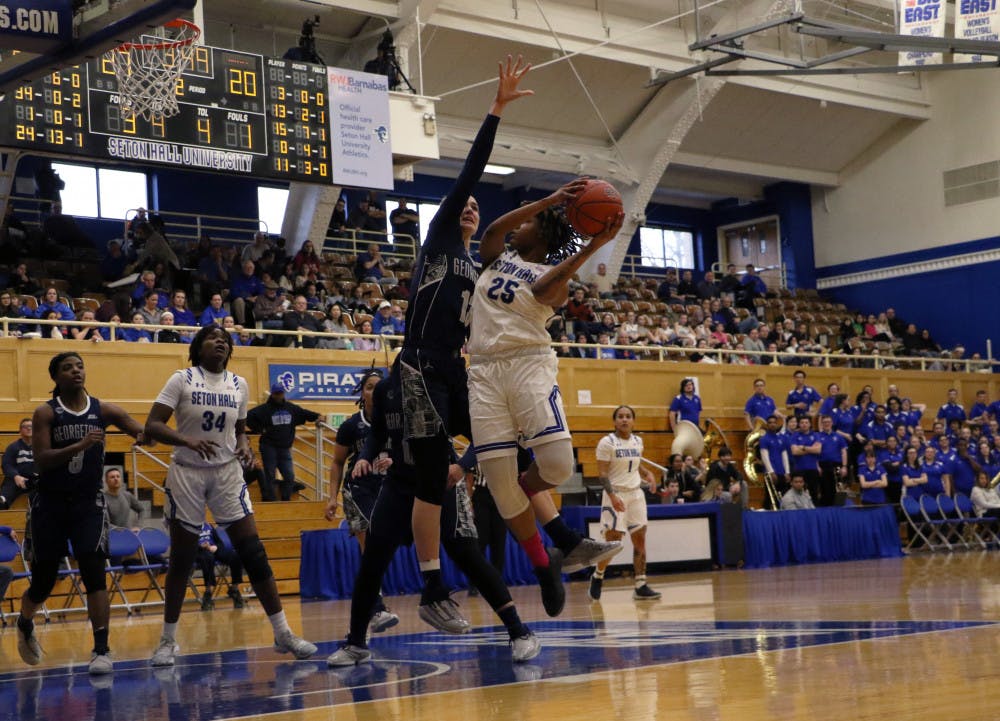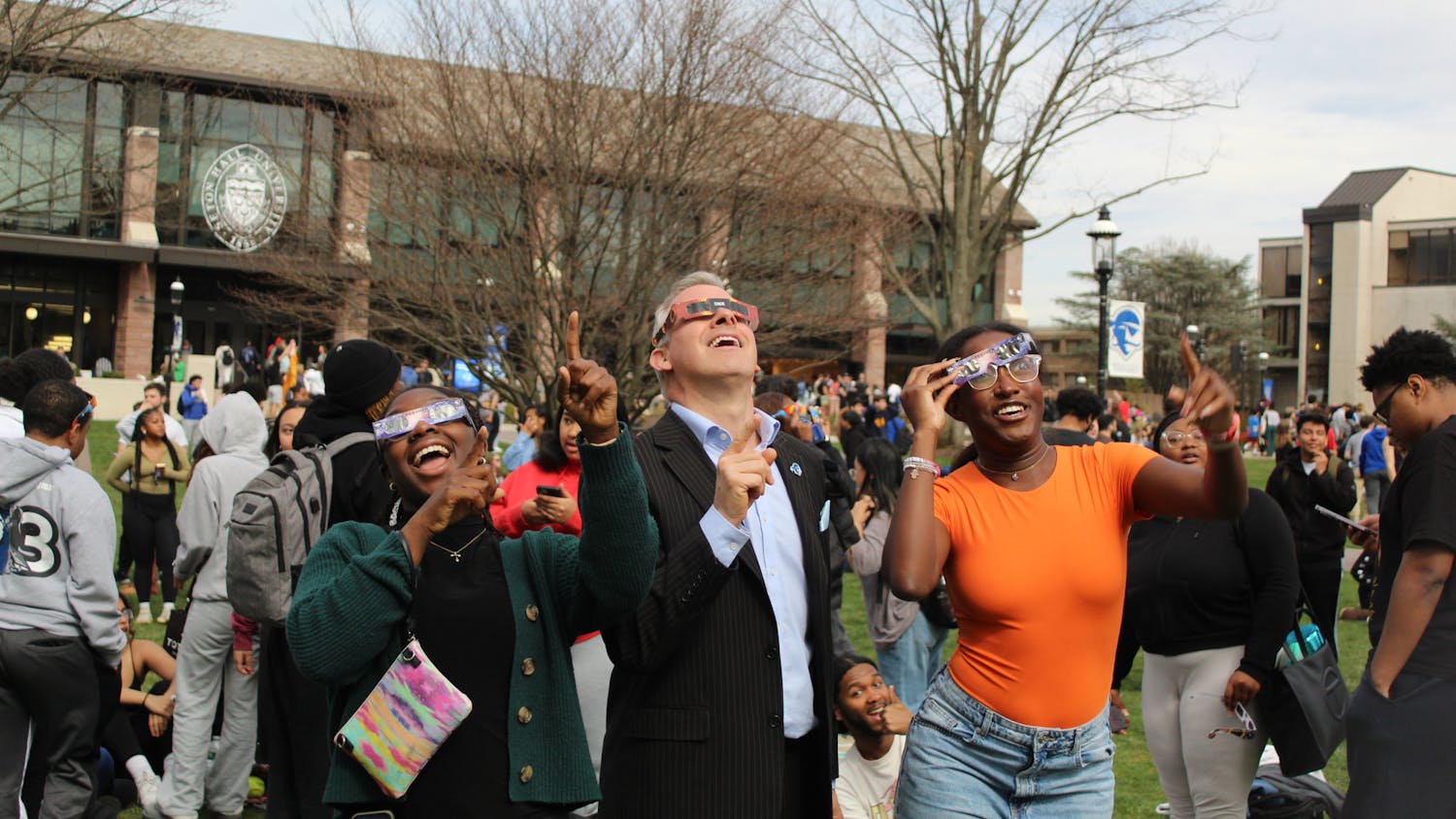[caption id="" align="alignnone" width="150"] shu.edu[/caption]
The price of course credits at Seton Hall, when combined with room and board costs, meal plans, and other fees, has led some students and incoming freshmen to look toward a cheaper alternative to get their degree—starting their studies at community college or, in some cases, high school. Undergraduate students pay $1,130 per course credit at Seton Hall.
Brookdale Community College in Lincroft, NJ, offers courses at a significantly lower price than what Seton Hall credits cost. A three-credit class at Brookdale would cost in-county students about $389, plus service fees, according to its website. Seton Hall students would be looking at savings of about $3,000.
Essex County College also offers students significant savings. According to ECC’s website, one 3-credit course costs in-county students $468. If a student opted to earn some credits at Essex Community College, he or she would be saving an average of more than $2,900.
Hezal Patel, director of SHU’s transfer center, said that “more and more students” are coming to SHU with community college credits.
“Here at SHU we will accept any college level course with a grade of C or above,” Patel added.
Madison McHugh, a student in the School of Diplomacy and International Relations, entered Seton Hall with credits from high school.
“I actually got my credits through a special program called the College Acceleration Program my high school was offering in collaboration with the local community college, Burlington County College,” McHugh said. “Basically, I got credit for classes at a discounted price, for roughly $150 per class.
“By the time I was out of high school, I had a BCC transcript with 29 credits," McHugh added.“As far as the money, I suppose I spent somewhere around $1,500 for all of my high school credit. Plus, I’m saving an entire extra year of college costs.”
Some students coming to Seton Hall have already completed as many as 60 credits, according to Patel.
“We do not accept any remedial level courses or vocational training courses. Students can use the equivalency feature on njtransfer. org if they are transferring credits from a community college, to determine if those credits will be accepted at SHU,” she said.
Patel warned students that, “While it may be advantageous for students to take college credits in high school, they have to be prepared for some of them not to be counted towards their program.”
Allison MacManus, a freshman in the School of Diplomacy and International Relations, fulfilled her elementary language requirement at Washington University in St. Louis.
“I earned elementary French credits that easily transferred to SHU,” MacManus said. “One summer saved me a whole year of French classes.”
Since Washington University in St. Louis is not a community college, MacManus paid about $4,000 for two French classes, which is ultimately still more than $2,700 cheaper than Seton Hall’s
price for six course credits.
These prices do not reflect any scholarship awards or financial aid that could be given to students.
Patel added, “We do not accept any remedial level courses or vocational training courses. Students “need to be mindful of specific program requirements as some will require specific courses be taken at SHU.”
Megan O’Malley can be reached at megan.omalley@student.shu.edu.
shu.edu[/caption]
The price of course credits at Seton Hall, when combined with room and board costs, meal plans, and other fees, has led some students and incoming freshmen to look toward a cheaper alternative to get their degree—starting their studies at community college or, in some cases, high school. Undergraduate students pay $1,130 per course credit at Seton Hall.
Brookdale Community College in Lincroft, NJ, offers courses at a significantly lower price than what Seton Hall credits cost. A three-credit class at Brookdale would cost in-county students about $389, plus service fees, according to its website. Seton Hall students would be looking at savings of about $3,000.
Essex County College also offers students significant savings. According to ECC’s website, one 3-credit course costs in-county students $468. If a student opted to earn some credits at Essex Community College, he or she would be saving an average of more than $2,900.
Hezal Patel, director of SHU’s transfer center, said that “more and more students” are coming to SHU with community college credits.
“Here at SHU we will accept any college level course with a grade of C or above,” Patel added.
Madison McHugh, a student in the School of Diplomacy and International Relations, entered Seton Hall with credits from high school.
“I actually got my credits through a special program called the College Acceleration Program my high school was offering in collaboration with the local community college, Burlington County College,” McHugh said. “Basically, I got credit for classes at a discounted price, for roughly $150 per class.
“By the time I was out of high school, I had a BCC transcript with 29 credits," McHugh added.“As far as the money, I suppose I spent somewhere around $1,500 for all of my high school credit. Plus, I’m saving an entire extra year of college costs.”
Some students coming to Seton Hall have already completed as many as 60 credits, according to Patel.
“We do not accept any remedial level courses or vocational training courses. Students can use the equivalency feature on njtransfer. org if they are transferring credits from a community college, to determine if those credits will be accepted at SHU,” she said.
Patel warned students that, “While it may be advantageous for students to take college credits in high school, they have to be prepared for some of them not to be counted towards their program.”
Allison MacManus, a freshman in the School of Diplomacy and International Relations, fulfilled her elementary language requirement at Washington University in St. Louis.
“I earned elementary French credits that easily transferred to SHU,” MacManus said. “One summer saved me a whole year of French classes.”
Since Washington University in St. Louis is not a community college, MacManus paid about $4,000 for two French classes, which is ultimately still more than $2,700 cheaper than Seton Hall’s
price for six course credits.
These prices do not reflect any scholarship awards or financial aid that could be given to students.
Patel added, “We do not accept any remedial level courses or vocational training courses. Students “need to be mindful of specific program requirements as some will require specific courses be taken at SHU.”
Megan O’Malley can be reached at megan.omalley@student.shu.edu.

Comments




